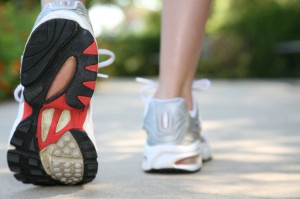
When it comes to running, selecting the appropriate footwear is essential for comfort, performance, and injury prevention. For long-distance running, cushioned shoes with ample support are ideal to absorb shock and reduce fatigue, enhancing endurance. Trail running demands shoes with rugged outsoles and superior traction to navigate uneven terrain and provide stability on rocky paths. If you are into sprinting or track running, lightweight shoes with minimal cushioning and a snug fit promote agility and speed. Cross-training shoes offer versatility for various activities, blending features suitable for running, jumping, and lateral movements. For those with overpronation or flat feet, motion-control shoes with reinforced arch support help correct gait imbalances and prevent injuries. Conversely, neutral shoes suit runners with normal pronation, offering balanced cushioning and support. If you have developed pain from wearing the wrong type of running shoes, it is suggested that you visit a podiatrist who can treat any foot ailment, and educate you about what type of shoes to purchase for your running style.
If you are a runner, wearing the right running shoe is essential. For more information, contact one of our podiatrists from Lexington Foot and Ankle Center, PSC. Our doctors can provide the care you need to keep you pain-free and on your feet.
Choosing the Right Running Shoe for Your Foot Type
To increase performance and avoid the risk of injury, it is important to choose the right running shoe based on your foot type. The general design of running shoes revolves around pronation, which is how the ankle rolls from outside to inside when the foot strikes the ground.
- Neutral runners are able to choose from a wide variety of shoes, including minimalist shoes or even going barefoot.
- Runners who overpronate, or experience an over-abundance of ankle rolling, should choose shoes that provide extra motion control and stability.
- Runners who underpronate, or supinate, have feet that have high arches and lack flexibility, preventing shock absorption. They require shoes with more flexibility and cushion.
If you have any questions please feel free to contact our offices located in Harrodsburg, Frankfort, Georgetown, and Lexington, KY . We offer the newest diagnostic and treatment technologies for all your foot and ankle needs.